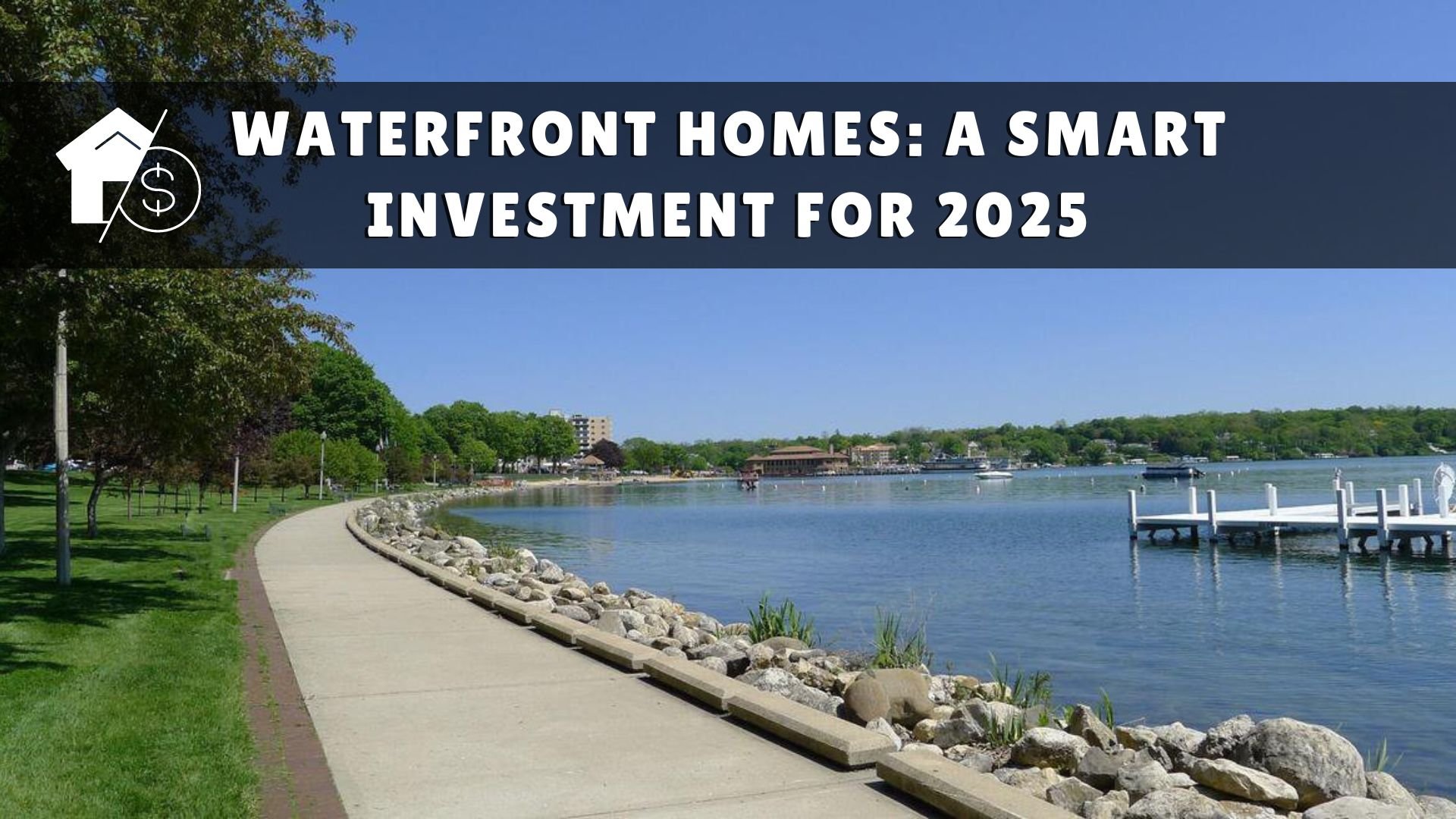A New Approach to Real Estate Negotiations with Help of AI
AI is reshaping how buyers, sellers, and agents interact in the property market. Imagine having a smart assistant that analyzes market trends, predicts buyer behavior, and offers real-time data to back up your negotiation strategy—all at the click of a button
A new approach to real estate negotiations with help of AI is reshaping how buyers, sellers, and agents interact in the property market. Imagine having a smart assistant that analyzes market trends, predicts buyer behavior, and offers real-time data to back up your negotiation strategy—all at the click of a button. That's what AI can bring to the table! With tools that analyze everything from neighborhood pricing history to the nuances of buyer requests, agents can enter negotiations armed with insights that were once only possible through manual research.
Take, for instance, an AI-driven system that evaluates previous sales data and current listings to give you an idea of how a property is likely to perform in the market. Or picture an AI tool that can simulate different negotiation scenarios, suggesting the best counteroffers based on real-time information. By implementing these technologies, agents can optimize their negotiation tactics, saving time and ensuring they get the best deal possible for their clients. It’s a game-changer that’s turning the traditional approach to real estate upside down!
Understanding Traditional Real Estate Negotiations
Traditional real estate negotiations can often feel like a high-stakes game of poker. You’ve got buyers and sellers, each with their own agendas, trying to outsmart each other while navigating a constantly shifting market. Here’s the deal: it’s stressful, time-consuming, and let’s be honest—sometimes it gets downright messy.
Here are a few key points to keep in mind:
Back-and-forth is the name of the game: Buyers make an offer, sellers counter, and then they go back and forth until an agreement is reached—or one party gives up. Did you know that the average home sale involves about two to three rounds of negotiations?
Emotion plays a big role: Many times, the parties involved aren’t just negotiating about price—they have emotional attachments to the property or are eager to land their dream home. This can complicate things and sometimes lead to poor decisions.
Time is money: The longer negotiations drag on, the more it can cost both parties, particularly in hot markets. Research shows that homes that linger on the market for more than 30 days see a 10% dip in buyer interest.
How It Typically Works
Take, for instance, a typical scenario:
StepSeller's Action Buyer's Action
1 List home at a certain price Make an initial low offer
2 Counter-offer with a higher price Respond with a slightly higher offer
3 Agree on a price after several rounds Contingent offer or acceptance
In this back-and-forth dance, neither side may feel fully satisfied by the end. The process often consumes weeks or even months, and that can lead to frustration and miscommunication. Did I mention that about 66% of real-estate transactions end with at least one party feeling dissatisfied? Yikes!
Next up, we’ll explore how AI can shake things up and make negotiations smoother, quicker, and more efficient. Get ready!
The Rise of Artificial Intelligence in Real Estate
Hey there! Let’s dive into how AI is shaking up the real estate landscape. It's no longer just about location, location, location; it's about data, speed, and insights. Seriously, AI is becoming the game-changer for real estate negotiations, making the whole process faster and smarter.
Why AI? Here’s Why!
First off, real estate deals involve tons of data. AI analyzes market trends, property values, and buyer behavior in real-time, allowing agents and buyers to make informed decisions. Here are a few stats:
According to a recent survey, 86% of real estate professionals believe that AI will transform the way they operate.
In fact, AI-driven analytics can increase negotiation efficiency by up to 30%!
Key Benefits of AI-Driven Negotiation Tactics
So, if you're still on the fence about integrating AI into your negotiation strategies, remember: these tools provide a mix of speed, personalized service, and data insights that can seriously elevate your real estate game.
Statistical Insights: AI Impact on Deal Closures
Let’s get straight to the numbers! When it comes to using AI in real estate negotiations, the statistics are pretty eye-opening. Research has shown that integrating AI tools can increase deal closures by an impressive 25%. That's not just fluff—it's real data from the field!
But how does this actually work? Well, AI algorithms can analyze market trends and buyer behaviors faster than you can say "real estate." For instance, tools like Zillow and Redfin not only provide listings but also crunch numbers to predict property values and market shifts. This means you, as a buyer or seller, can make decisions based on solid data, not just gut feelings.
Here’s a Quick Look at the Stats:
Statistic Impact on Deal Closures
Decrease in negotiation time Up to 40%
Increase in deal accuracy 30%
Boost in customer satisfaction 20% increase
Reduction in failed deals 15% decrease
Let’s break that down a bit. With a 40% cut in negotiation time, you’re spending less time in back-and-forth discussions and more time closing deals. Plus, a 30% increase in accuracy means the offers you're making or receiving are more aligned with true market values—no more guessing games!
And here's something to chew on: 20% more satisfied customers can translate into referrals and repeat business. Happy clients mean your reputation grows, which is everything in this industry!
For example, a real estate company using AI chatbots reported that they managed to close deals 35% faster than those relying solely on human agents. That’s the power of AI! These bots can sift through data at lightning speeds and help clients find homes that meet their criteria without wasting time. Talk about a win-win!
So, if you're not already onboard the AI train in real estate, you might want to hop on. With solid statistics backing the benefits, it’s clear: AI can seriously spice up your deal-closing game.
Enhancing Decision-Making with Predictive Analytics
Ever sat through a real estate negotiation and thought, “I really wish I had a crystal ball right now”? Well, with predictive analytics, we’re one step closer to that magical insight. This tech is shaking up the way we make calls in real estate. Let’s break it down!
Predictive analytics takes historical data and uses it to forecast future outcomes. Imagine if you could see how the location you’re interested in has performed over the last few years, taking into account factors like market trends, neighborhood developments, and even school ratings. With this data at your fingertips, you can make smarter, more informed decisions.
Data Points Impact on Decisions
Location Trends Helps identify emerging neighborhoods for investment.
Market Prices Predicts price fluctuations, preventing overpaying or leaving money on the table.
Rental Yields Guides choice between buying for rental or resale.
Demographic Changes Understand who your potential buyers or renters are.
For instance, let’s say you’re eyeing a property in a neighborhood that’s historically been slow to appreciate but is starting to show signs of growth due to new schools and a fancy coffee shop. By analyzing data, predictive analytics might show a potential appreciation of 10% over the next few years, helping you gauge if it's time to buy now before prices jump.
According to a report by HouseNix, properties analyzed with predictive models can see an increase in investment returns by up to 15%! Talk about a game-changer. This tech is no longer just for the big players; it’s becoming accessible to all of us.
So, whether you’re a first-time buyer or a seasoned investor, utilizing predictive analytics can help you avoid costly mistakes. The goal? Make sure you’re not just making educated guesses but informed decisions. Because in this game, every dollar counts!
Comparative Analysis: AI vs Traditional Negotiation Strategies
When it comes to negotiating in real estate, traditional methods have been the norm for ages. You know the drill: hours of back-and-forth, emotional ups and downs, and sometimes even heated arguments. Enter AI, shaking things up a bit. Let's break down how these two approaches stack up against each other.
Now, before you think AI is the superhero of negotiations, let’s look at the stats: a recent study showed that negotiations using AI reached satisfactory agreements 30% faster than traditional methods. Imagine closing a deal in half the time!
Take, for example, a property listed at $500,000. Using AI, data can reveal that similar homes in the area recently sold for $475,000, $490,000, and $505,000. Armed with this data, you're not just throwing a number out there; you’re negotiating with solid evidence. On the flip side, a traditional negotiation might only rely on what you or your agent believe the house is worth, often leading to a long exchange of offers and rejections.
Real-world Applications of AI in Property Negotiations
When it comes to property negotiations, AI is changing the game. Imagine having a powerful assistant that crunches numbers, analyzes trends, and even predicts outcomes—all while you're sipping coffee! Here's how AI is actually making waves in real estate negotiations.
1. Predictive Analytics
AI can analyze vast amounts of data, including market trends and historical sales, to give you insights on property values. For instance, a property listed for $300,000 might actually be worth more—or less—depending on neighborhood trends. AI tools can help buyers decide exactly how much to offer by forecasting future property prices.
2. Smart Negotiation Bots
Say goodbye to endless back-and-forth emails! AI chatbots can assist in real-time negotiations. Platforms like Rex use AI bots to facilitate offers and counteroffers automatically. This speeds up the process and ensures that you don’t miss out on great opportunities just because the other party took too long to respond.
3. Data-Driven Decision Making
When you're negotiating, every piece of data counts. AI tools can provide detailed reports on comparable properties (also known as "comps"), which can strengthen your case. Studies have shown that using AI-driven tools can improve negotiation outcomes by up to 25%!
4. Enhanced Market Insights
AI tools like Residoora can provide deep market insights that are hard to find on your own. They aggregate data from various sources, offering you a comprehensive view of the market landscape. This way, you can negotiate with confidence, knowing you have the numbers to back you up!
5. Personalized Buyer Experiences
Let’s talk about personalized experiences. AI helps property managers and agents tailor their services to individual buyer preferences, improving overall satisfaction. For instance, AI can analyze your past interactions and suggest properties that match your style and needs, ensuring you get the best deals that resonate with you.
Optimizing Offers: How AI Analyzes Market Trends
Let’s talk about how AI is shaking up the way we optimize offers in real estate negotiations. It’s not just about guesswork anymore; it’s about using big data to make informed decisions that can save you cash.
AI tools crawl through a mountain of data—think market trends, neighborhood developments, and even seasonal patterns. This means you get insights that are way more reliable than just following your gut. For example, did you know that properties listed in spring can sell for up to 15% more than those listed in winter? AI picks up on these trends, so you can time your offers to perfection.
Data-Driven Offers
Using AI, you can analyze comparable sales in real time. Let’s say you find a cozy 3-bedroom house in a trendy neighborhood. An AI tool can quickly calculate what similar homes sold for recently. If the average sale price for similar homes is $400,000 but yours is listed at $450,000, you can see right off the bat it might be overpriced.
Understanding Buyer Behavior
But it doesn’t stop there. AI also studies buyer behavior. For instance, it can identify features that are hot on the market—like open floor plans or energy-efficient appliances. When you optimize your offer based on what buyers are looking for, you position yourself way ahead of the competition. According to a recent study, 75% of buyers are willing to pay more for a home with desirable features. Make sure your offers reflect that!
Price Adjustments & Negotiation Leverage
FeatureValue Increase (%)Energy-Efficient Appliances10-15%Smart Home Technology5-10%Updated Kitchen20-25%
Real-Time Market Analysis
The best part? AI doesn’t just stop analyzing once you make an offer. It keeps watching the market for any sudden moves. If suddenly a bunch of homes in your target price range get listed, you’ll know right away. This allows you to tweak your offer quickly to stay competitive.
So, using AI to optimize your offers isn’t just smart; it’s necessary in the fast-paced world of real estate. In fact, sellers using AI-driven pricing strategies have reportedly seen increases of up to 30% in their closing deals. With all this tech at your fingertips, how can you afford not to use it?
Visualizing Success: Charts and Graphs of AI Efficiency
When it comes to real estate negotiations, seeing is believing! Let’s dive into some charts and graphs that highlight how AI is shaking things up and making the process a breeze.
Negotiating Better Deals
AI doesn’t just speed things up; it also helps folks snag better deals. According to a recent survey, 64% of real estate agents using AI tools reported higher closing prices for their clients. Here’s a quick look at how AI-powered negotiation tools stack up:
Price Analysis: AI tools analyze market trends and comparable property prices, allowing agents to suggest optimal pricing strategies.
Predictive Analytics: With predictive models, clients can anticipate market shifts and adjust their offers to gain an edge.
Sentiment Analysis: AI assesses buyer/seller sentiment in real-time and helps tailor negotiation tactics accordingly.
Cost Savings with AI
As these stats show, incorporating AI into real estate negotiations isn’t just a passing trend—it's a revolution. Less time, more money saved, and better deals? That’s definitely a win-win!





























